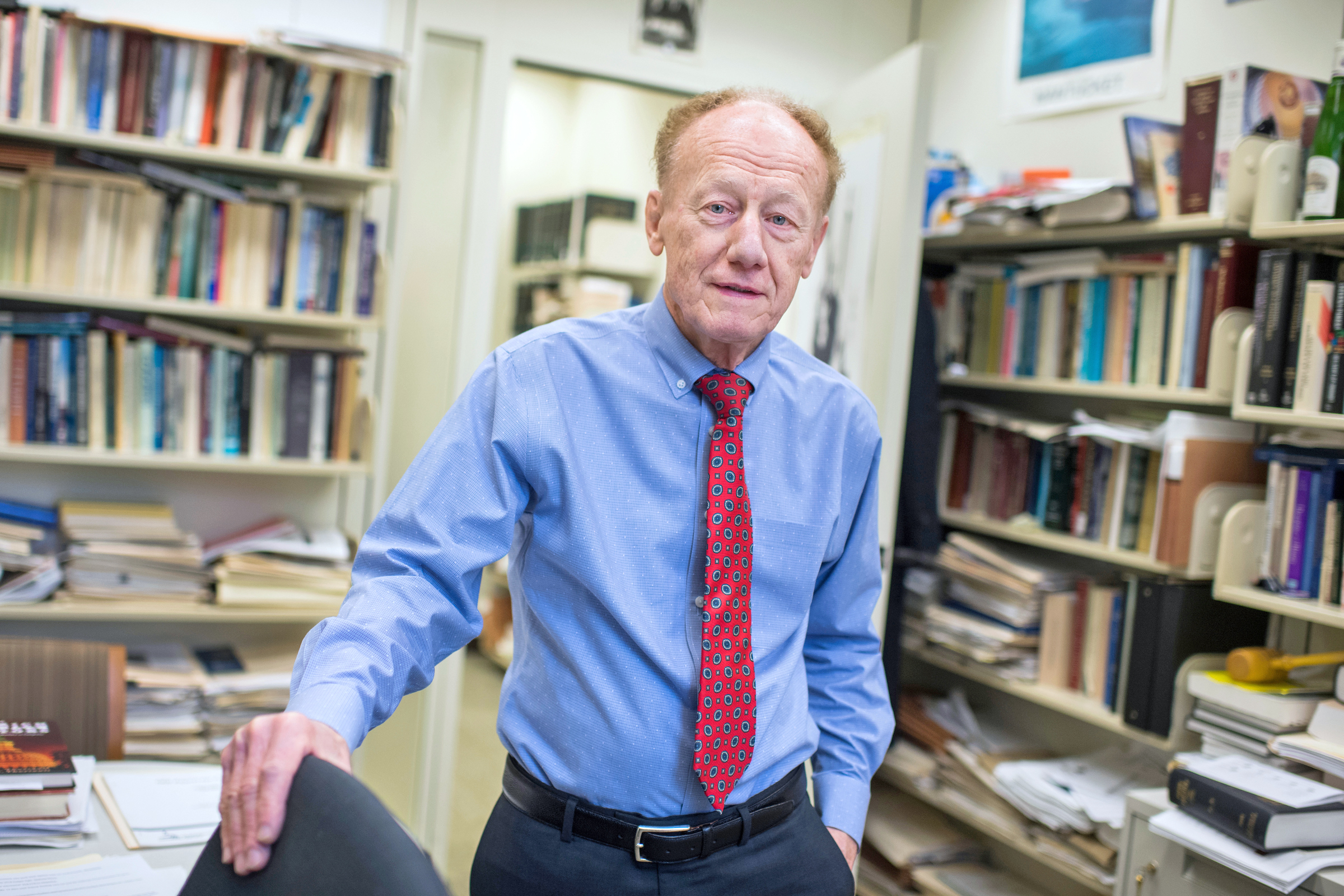From Wite-Out to Regular Order: A Lot Has Changed at the CRS
Walter Oleszek is the agency’s longest-serving employee

When Walter Oleszek was hired at the Legislative Reference Service in 1968, Lyndon Johnson was president. The Legislative Reference Service is now the Congressional Research Service, and Oleszek is still there 50 years later. He has seen a lot of change when it comes to his favorite subject: Congress.
Currently the longest-serving employee at the agency, Oleszek may be best known to legions of political science students for two books he’s written over the past 35 years: “Congress and Its Members” and “Congressional Procedures and the Policy Process.”
He’s watched Congress shift from a committee-centric system, where powerful chairmen could move bills and gather votes, to one in which party leaders play a bigger role. Committee term limits for House and Senate Republicans now stand where seniority used to flourish.
He also highlights another change, the rise of conditional party government, with members of each party united on ideology but separated by a gulf from their peers in the other party. He cites the 2010 health care law and the recent tax overhaul as examples of how Congress is moving toward a quasi-parliamentary model where the majority party tries to govern alone and the minority party stands in opposition. That, he worries, doesn’t help Congress in a government based on a separation of powers between executive and legislative branches.
Watch: A Look Back at Kaptur, Longest-Serving Woman in the House
By contrast, when Oleszek began his career, party leaders were only one power center among many. It wasn’t “like today where it’s often a relatively small number of members, largely party leaders and whoever is invited into the room that often make the critical decisions,” he said.
Of course, CRS has changed along with Congress. The agency is bigger and technology facilitates its work more than it did in the 1960s. “When I started, it was basically typewriters, Wite-Out, carbon paper,” he said.
That’s good, because Congress, having downsized its own staff, is now relying more than ever on CRS. Oleszek works in the Government and Finance Division, one of five research divisions within the agency, and he notes that the amount of work has gone up as the congressional issue agenda has expanded.
For CRS lifers like Oleszek, who love the institution and studying its nuances, it’s always changing and challenging. “Yeah I may be a senior specialist, but I see myself as a senior generalist because you have to cover so many topics,” he said.
Oleszek was born in a small agricultural town in upstate New York in 1941. After earning bachelor’s and master’s degrees, he took a year off in the middle of his doctorate to teach at Colgate University. As luck would have it, one of his students was Alan Frumin, who later became Senate parliamentarian.
After getting his PhD, Oleszek decided in May 1968 to go to Washington to find a job. A friend referred him to the head of the government division at the Legislative Reference Service. He got an interview and, as Oleszek tells the story, he was asked one question: “Can you write a report for both Strom Thurmond and Ted Kennedy?” He said “yes” and was hired.
He was in the right place at the right time. Just after he started, he worked with the House Rules Committee to help craft one of the most important laws on congressional process, the 1970 Legislative Reorganization Act. It overhauled a range of congressional procedures, from how debates on the floors are conducted to how amendments are considered to how votes are counted. For his efforts, he received a rare memento: a pen President Richard Nixon used to sign the law.
It was the same law that changed the name of the Legislative Reference Service to the Congressional Research Service.
But it wasn’t until the Republican Revolution of 1994 that some of the biggest changes occurred. In 1993, Oleszek served as policy director on the Joint Committee on the Organization of Congress and worked with several co-chairmen, including Democrat Lee Hamilton of Indiana and Republican Rep. David Dreier of California. The panel was formed to conduct a comprehensive examination of the functions of Congress in the wake of the House Post Office and House Bank scandals.
“Walter had this unique ability to stay above politics but have a really good grasp of it,” said Dreier, who retired from Congress at the end of 2012.
At 76 and still working full-time, Oleszek is currently writing a report on a topical subject: regular order, which lawmakers continue to tout as a goal but seem unable to define or restore. Loosely, it means that Congress is producing legislation through its committees, with ample opportunity for all members to debate and to offer amendments. Oleszek plans to define it more precisely, in both a historical and contemporary focus, and how it’s changed over time. He hopes to finish it soon.
Oleszek said over his 50 years, there’s always been one constant barrier: time. “There’s always more things to do. I could live to 100 and never do everything I suppose I would like to do,” he said. “I have been grateful to CRS and my colleagues for the opportunities that have been provided me and working with the Congress directly, which was just a tremendous experience on so many efforts.”





